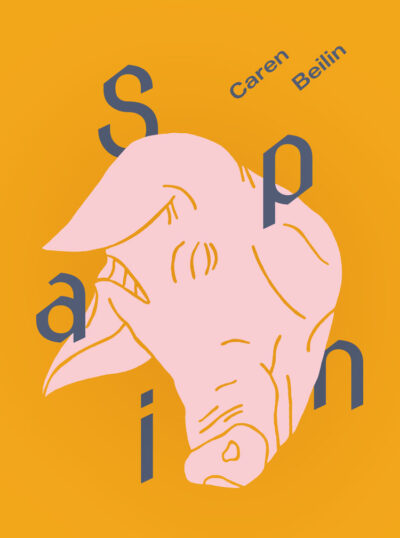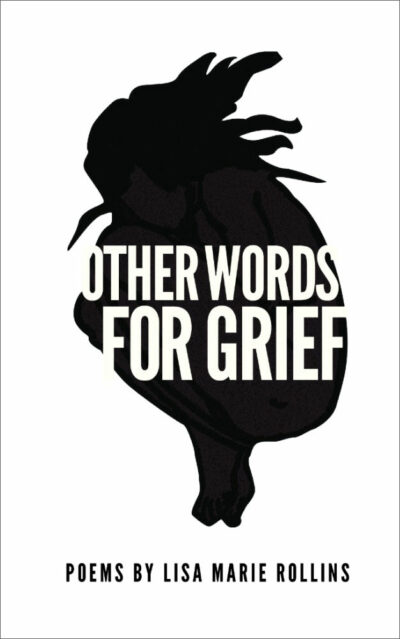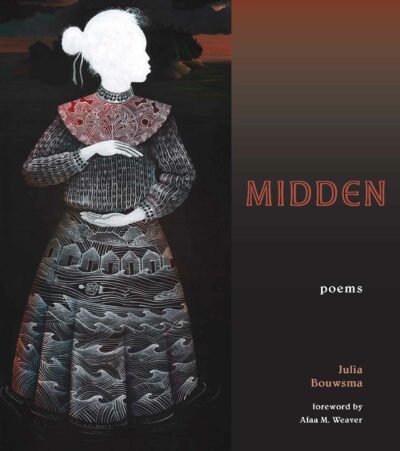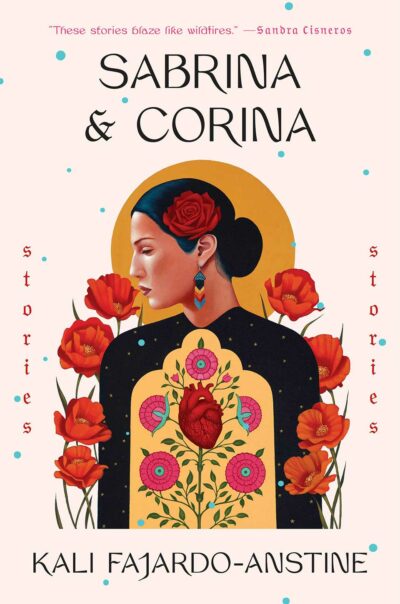Spain, by Caren Beilin
(Rescue Press, 2018)
Beilin is on an artist residency in Spain in which she’s paying her own way. To my knowledge, Spain is in its own genre of travel writing, a sort of anti-travel travel writing, where refusal is the subject. The book often refuses to see the sights of glossy panorama that’s typical in travel writing. Belin refuses, for various reasons, to integrate into the culture of the town she’s in. And the sentences refuse to be heightened into grandeur:
“The abuelo’s pants were pressed. Anti-violet brown.”
“Blood Sausage…I imagined it was sheep blood. Sheep are like moving bushes of dredding tampons.”
“I axed the pig head…I had the axe in my hand, a disinterest, and I blew the head in half with a cut, so forceless, a blowhard slice of an already deceased piece of the food property of this Spanish family…”
All of this refusal isn’t just a grumpy person traveling, it’s part of a feminist refusal to give up agency by being integrated against one’s wishes, and a feminist refusal to always have to convey grand meaning.
Other Words for Grief, by Lisa Marie Rollins
(Finishing Line Press, 2019)
The ocean/water is prominent in the first six pieces of this book. An unknown place deep in an ocean, a forgotten wish turns into a black pearl. (water as hope) The ocean’s memory is “filled with bones of slaves, pirates, and mariners” and it also “cleanses itself even as it holds tight to carcass, wreckage, blood.” (water as death and resurrection) There’s the coast of the north Philippines where the two giants who made “our Ilocano bodies” guide you the highest hill where you will be filled with starlight and be able to walk across the sea. (water as passage/portal)
“for those children taken from Haiti after the 2010 earthquake… for the wealth of bodies moved across ocean and land / unaccompanied wrapped for presentation at the airline gate” (water as rupture/passage to whiteness)
After reading this, I’m starting to think of grief in other ways that I hadn’t, like grief is intelligence, empathy, resurrection, wishing. Grief is also a portal to the unknown, and/or a portal to somewhere you know you have to go.
Midden, by Julia Bouwsma
(Fordham University Press, 2018)
“In 1912 the State of Maine forcibly evicted an interracial community of roughly forty-five people from Malaga Island, a small island off the coast of Phippsburg. Though Malaga had been their home for generations, nine residents (including the entire Marks family) were committed to the Maine School for the Feeble-Minded in Pownal, while others struggled to find homes on other islands or on the mainland, where they were often unwelcome.” That passage opens the book: an old eviction, homelessness, and is followed by two “present-day” poems titled “I Walk My Road at Dusk” and “The Way Home.” Bouwsma is not ignoring the privilege of ownership (my road) or having a home, which makes the eviction more terrifying because it’s in contrast to being settled. Another part of Midden that keeps speaking to the erasure of the people from Malaga Island are the recurring poems called “Dear Ghosts,…”, which account for 12 out of 47 poems. Other poems also function as a sort of “Dear Ghosts” because they embody and speak from some of the people from the island such as Lizzie Marks and Annie Parker.
Midden also contains a document from Agent Pease, a state worker responsible for cataloguing and counting the residents of the island and what to do with them. The document is preceded by a poem called “Agent Pease’s Defense”, and the language Bouwsma chooses feels cold and calculating like the document, “It was just math. They asked. The State. So I worked. The figures. Every person has a cost. Every person. Has a price. Divide and subtract.” That’s common throughout the book, where the language feels like what it is attempting to describe.
Avery Colt is a Snake. A Liar. A Thief, by Ron Austin
(Forthcoming, Southeast Missouri State University Press, 2019)
Avery Colt is described as a semi-autobiographical, linked story collection follows the misadventures of Avery Colt as he struggles to survive in North St. Louis alongside his family. I often tell people that I wish it was okay in “official reviews” to talk about books like how me and my friends and family would sit on the porch and do it. Austin’s collection encourages that, because it contains a lot of Black American codes (speech, tones, and body) and our folks’ storytelling traditions and innovations. Like I could point and nod my head to someone else who read the book and say, “That shit right there, that part, whoo!” would contain a whole world of meaning because we share the pain, the joy, and compassion of that moment and have a deep understanding of it. We don’t need to say a lot because “I feel you.” I mentioned in my blurb that this book felt like my cousins, aunties, uncles, grandparents, parents, siblings, and friends. Avery Colt isn’t concerned with explaining or justifying black social life to white readers, it’s concerned with telling and reflecting these stories for the sake of its own community.
Sabrina & Corina, by Kali Fajardo-Anstine
(One World/Random House, 2019)
Sabrina & Corina is a story collection that’s mostly “about” Latinas of Indigenous descent living in Colorado. The women are the centers of the stories, which often begin with some kind of loss/absence of people or land, and the women and the arrangements of the stories do the labor of rebuilding, re-filling, and moving on despite state-sanctioned (see also patriarchal) violence.
In recent years, there have been a lot of white people moving to Denver and a lot of non-white people moving from Denver, or pushed to the margins of Denver. Because of this erasure, Sabrina & Corina is like a sort of wispy map of what was that pinpoints streets and neighborhoods full of diverse life that a lot of us have the privilege of never having to know or care about.



